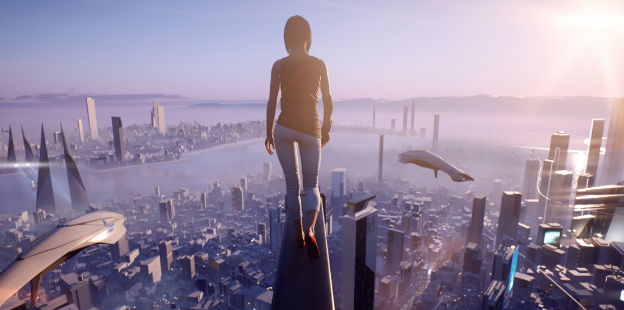
Due Diligence: That Time I Was In A Videogame Focus Group
Leigh Harrison meets the lizardmen.
I told them. They sat behind a one-way mirror, videotaping the whole thing so they could watch my sage advice over and over again, and I told them. I told them everything they needed to know to make Mirror’s Edge Catalyst good. Indeed, I even told them not to call it Mirror’s Edge Catalyst, because it’s a foolishly nondescript-yet-clearly-an-origin-story kind of a name, and it’s been so long since the first game was a going concern that nobody cares if this new one is a sequel or a prequel or a sweet, sweet reboot. “You’re making a new Mirror’s Edge,” I told them, “just listen to me and you’ll make a Mirror’s Edge so good that the name won’t matter.” And did they listen? No, they didn’t. Of course they didn’t.
Every now and again I partake in market research. I do so primarily because I get paid £50 for an hour of my time and it’s easy, but also because I gain a great deal of self-satisfaction from being asked my opinion on really mundane things, usually advertisements. Advertisements that someone was paid a disgustingly large amount of money to make, which, despite this artificial injection of baseless worth, are entirely lacking in any true value, because they exist solely to sell something else. I generally sit in a room with about a dozen other people, watch some TV spot or other, or look at a glossy poster, or listen to radio jingles, and then I’m asked lots of questions.
It’s early 2014, and I’m in a plush meeting room in central London. A smartly dressed man sidles up to me, ready to extract my precious thoughts. He’s in a suit but not wearing a tie. These men are always open-collared because, well, they work in marketing and marketing isn’t really business — or so they’d have you believe. He breezily gets straight to the point.
“What do you think of this advert for cable TV that cleverly leverages the Disney film Frozen?” He continues, almost giving the game away by baring just a glimpse of his sharp teeth and forked tongue: “I’m aware that the Disney film Frozen is very popular with the 3-10 female demographic, which is why it features prominently in this advert for cable TV.”
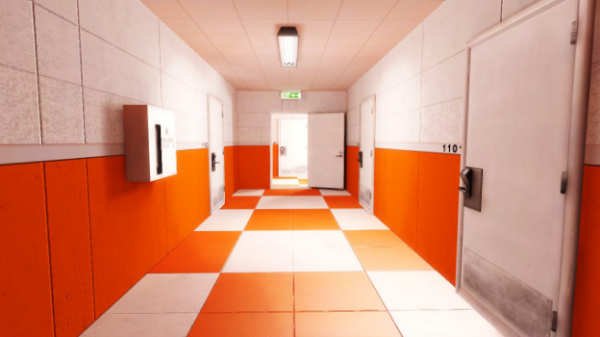
Despite knowing my exact opinion straight away, I’m always initially a little reticent, until I realize I’m earning 83 pence (about $1.15) a minute to voice my innermost thoughts on this sort of ghastly rubbish.
“Well,” I say, not doing much to disguise my glare, “I’m not too sure, really.”
“Oh I’m sure you are, Leigh. It is Leigh, isn’t it?” he asks with a faux mawkishness that fools no one — he’s looking right at my name badge.
It’s always a he, by the way; women only work at reception like it’s still the ‘50s.
He looks up at me and persists, this being his very well paid job and all. “I can see it in your eyes that you have something to say about this highly effective brand synergising. Tell me what you’re thinking.”
And here’s the part where I say something mildly cantankerous but entirely truthful.
“I’m personally not really into the whole, you know, exploitation of children’s impulsivity to extract cash from parents. I just think it’s a bit sleazy and cheap.”
Or, on another occasion a year or so earlier: “hmmm, not too keen on that TV ad you did where you put a mournful piano over images of firefighters running into flames so you could sell a phone contract.”
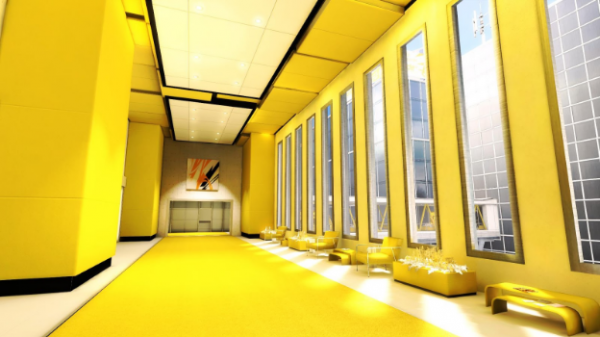
A different marketing man looks at me shocked as I continue, the bile dancing in my belly. “It was kind of gross as it was, but then you had an actress do a voiceover pretending to be one guy’s wife, and she was talking about how brave he was, but he reassured her, like only a hero would, that ‘it’s just a job’ and he’ll be okay, because he’s saving lives.”
At this point in the tirade the marketing man’s cold, reptilian eyes are showing the first sign of feeling I’ve seen all evening.
“And she had the faintest little break in her voice, because her fake husband may well die every single day, but hey, at least he can call her up and tell her he isn’t dead yet, right? Because he’s on Vodafone, like 77% of the emergency services. We should all be on Vodafone. Purchase a Vodafone contract today. It’s emotional blackmail of the worst kind, mate. It cheapens the brand and makes Vodafone look so, so grubby. These are people’s lives you’re using to sell a phone plan. It’s not happy kids and smiling parents: these are people who run into fires and sometimes burn to death. Not for a phone plan, mate. Don’t use them to sell a phone plan.”
He quickly turns away from me, disgusted at my cynicism. “Right, Joanne. It is Joanne, isn’t it? What did you think?”
Don’t get me wrong: I act like this out of defensiveness. I am not like them because I have integrity. I am not willing to compromise my arbitrary sense of morality for something as simple as selling a £9.99 Spotify subscription. And because of this — and I’m fully aware and have finally come to terms with it — I will never be successful enough to wear a suit with a shirt unbuttoned two or three stops. In achieving this clarity, my only real option is to embrace it and be proud. This is fortunate, because reverse elitism is a massive thing where I come from in the cold, post-industrial north of England, where it’s better to be salt of the Earth and uninspiring than to move to That There London (which I did) and sell your soul for 30 pieces of silver (something I’m still working on). It’s also true that I’m a bit snarky with the market researchers because I don’t really care about the products they’re trying to peddle. So when the opportunity came in fall 2014 to sit in a session for “an upcoming AAA title from a world-renowned studio” I leapt at it, thinking I might actually be able to share something that wasn’t instant dismissal.
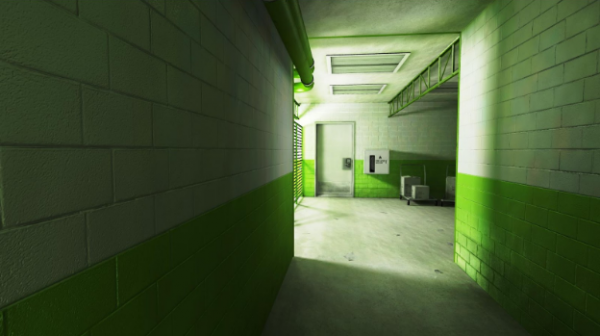
“Right, guys,” says the marketing man to the room of 16 to 35 year-old men, “you’re all gamers, what did you think of Mirror’s Edge?”
“It was really short.”
“I never played it. Someone told me it was, like, six hours for £40 and didn’t have multiplayer.”
“I liked it quite a bit, but it was repetitive. Not enough action outside the running and jumping.”
“The core conceit of a first-person game geared around fluid movement and traversal was great,” say I, elevating myself high above the current level of discourse like only someone subjectively retelling an event can. “I remember playing the demo with my friend for an entire evening. We’d run and rerun the same five minute segment, taking turns to improve our reactions and mastery of the level. It was really, really special.” I pause for a moment to let my incisiveness sink in, then go on. “The problem I had with the final game was that it strayed away from this interest in fluidity and became, well, a bit normal.”
“Hmm, interesting,” interjects the man stood at the end of the table, his hairy-chestedness proudly displayed by his gaping dress shirt. “Would you care to elaborate?”
I kindly oblige. “After the first few levels of just running about, which is really great, the whole thing gets bogged down.” A list begins to fall from my mouth. “There’s melee combat. And then awkward vertical platforming. You stop running forwards really fast and have to climb up stuff slowly and precisely, which spoils the pace. And then there are guns, and you have to use the guns to shoot people. And that is horrible.”
“I see, and how do you think we’d best fix this?” asks the Burt Reynolds-alike probably lizard-man, seeming genuinely interested.

“I’d take out all the guns…nay,” I’m almost shouting out of pure conviction now, “I’d take out the combat altogether and just concentrate on the parkour. That’s the only thing the first one was good at anyway. Do that again but better.”
“I see, but…”
I continue, undisturbed by the marketing man’s further inquiries. “Take out the story. Nobody remembers that anyway. Make it exclusively about running and jumping over roofs. Make it a time attack sort of game. You know: lots of little challenge levels where you try and beat your best time by ‘getting your flow on’. Bugger it. Just make Mirror’s Edge Trials. You know: like that insanely popular Trials game with all the wobbly bikes. People love that.”
The room falls silent as it collectively attempts to digest my genius.
“Watch this trailer and tell us what you think,” says the suit, once he’s taken a few moments to reassert his dominance over the group.
The trailer features lots of typical Mirror’s Edge imagery. There’s a lady called Faith, a gleamingly white dystopic megacity, lots of motion blur, some running, some jumping, and a wonderful techno-ey soundtrack. There is also this Swedish bloke who had something to do with making the game talking a lot. He’s going through the normal schpiel of how the developer, EA DICE, are working very, very hard — I’m not debating this fact — to make this new Mirror’s Edge better than the last one. But then he does a strange thing. He says, with a great amount of pride, that this new Mirror’s Edge is going to have “a massive, fully-immersive open world.” I audibly wince, everyone in the room looks at me with disapproval, and the trailer continues towards its inevitable conclusion.

“So, Leigh, I notice you made a fairly pained sound at the phrase ‘massive, fully-immersive open world’. Tell me about that.”
“I’m just not sure too sure why anyone would think making Mirror’s Edge open world would be a good idea, that’s all.”
The man in a suit tilts his head to one side and looks at me menacingly, a lot like Michael Myers does in the later Halloween films. “And why, pray tell, do you not think Mirror’s Edge would work as an open world experience?”
“Because the whole point of it is to foster a sense of speed and maneuverability that other games can’t match. The best bits of the first one were the tightly designed assault courses you ran through at terminal velocity.”
“Hmmm.”
I ignore the cold blooded Versace mannequin before me and just carry on. “Making it open world introduces two issues. One, it’s going to be physically impossible to create the same sort of compelling level design seen in the first one if players can approach things from numerous angles. Two, this open world is going inevitably going to be filled with a metric ton of throwaway content, and everyone is already sick of that. Just look at Assassin’s Creed and how nobody with taste or self respect has anything to say about it any more.”
At this, the marketing man tries to incinerate me with his piercing, lidless eyes, as if he were able to shoot a part of his own dark soul into my forehead. After a second or so of this not working he simply replies:
“We’ve held lots of focus groups for this game, and, quite frankly, you’re a bit of an outlier.”

Mirror’s Edge Catalyst eventually came out in June 2016, and, it pains me to say, is nothing like what I was paid £50 to armchair design. It’s actually exactly the same thing I was given cash money to dissect, critique, and — supposedly, at least it was my understanding — improve. Mirror’s Edge Catalyst is essentially just an open world doubling-down of the first game. The focus group was a fascinating experience nonetheless, and one I’ve only had to slightly embellish for publication thanks to its utter bizarreness. The bits I have altered, I hasten to add, are mainly the other people talking, because it was so often jibberish. I, however, remember almost every word I ever utter because I’m normally right, and on this occasion time has dutifully confirmed this. I was sat around a table and I told them — I handed it to them on a plate — and they chose not to listen to me, the undeniable voice of reason.
Being sat in a room with a load of people who are demographically “like me”, but in truth entirely unlike me, was certainly interesting. Seeing what other people find compelling was eye-opening, and goes some way to explaining why lots of big games end up the way they do. Canonized bastard Steve Jobs once said: “You can’t just ask customers what they want and then try to give that to them. By the time you get it built, they’ll want something new.” But with videogames it often seems like The Man Who Could Do No Wrong is totally off the mark. Consumers of videogame products seem perfectly happy to shovel in whatever they’re given, to the point where my room full of 16 to 35 year-old “core gamers” were advocating for Mirror’s Edge Catalyst to be more like all the other videogames, and not some glorious rebirth of a woefully overlooked and highly flawed gem.
I appreciate that games are an iterative artform, and that many of the most celebrated works are sequels, but I don’t think that incrementally improving over the course of a series is unanimously the best way to go. Sometimes you need to be frank and just admit that bits don’t work. Iteration cannot fix the problem of ultimately mismatched components. Combat never fit comfortably into Mirror’s Edge. It doesn’t suit Mirror’s Edge Catalyst, and it probably won’t ever work for the series, regardless of how many sequels it receives.
With a little bit of distance, the market research roundtable now seems much more like an echochamber than a legitimate exercise in product development. A place to hear that the decisions you’ve already made were the right ones, and that, yes, people do want you to make your game just a bit more like all the other ones, because that might distract from the more fundamental design problems. It seems to me, at least the one I took part in, to be an ultimately fruitless endeavour; one filled with half-heard criticism and amplified affirmation. Call me an outlier, but why pay people to pat you on the back when you could just do it yourself with your three-foot-long tail?
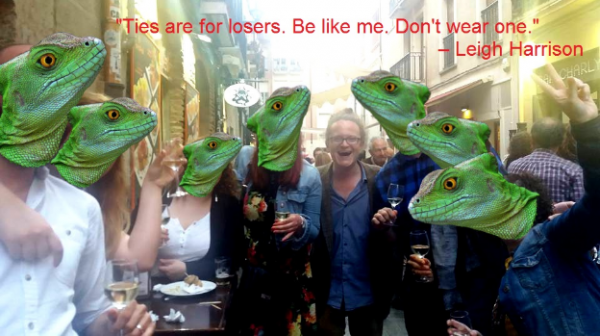
Leigh Harrison lives in London, makes DVDs for a living and owns a hamster. He likes canals and rivers a great deal, and spends a lot of his time walking. He occasionally says things about videogames on the Internet, and other things on The Twitter.